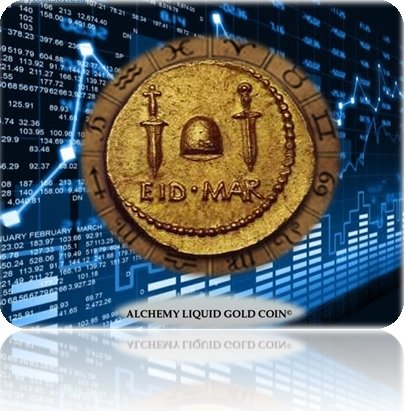Could You Qualify to Be a Full-Fledged Astronaut?
It’s not all glamour and spacewalks, but it is rewarding.

A group of U.S. Navy divers, Air Force pararescuemen and Coast Guard rescue swimmers practice Orion underway recovery techniques in the Neutral Buoyancy Laboratory at NASA’s Johnson Space Center. Photo: Photo: NASA/Radislav Sinyak
Becoming an astronaut isn’t for everyone. Robb Kulin recently became the first astronaut candidate in 50 years to drop out of NASA’s astronaut training program, and though it’s tempting to focus on the challenges and stresses he must have faced at NASA, former astronauts emphasize that this isn’t about one candidate who just couldn’t cut it.
The basic requirements
Things have improved since the early Mercury missions, when astronaut candidates were drawn exclusively from the military and subject to mind-bending tests. Though astronauts come from multiple backgrounds, there are some essential requirements that you simply have to meet.
Have a bachelor’s degree in engineering, biological science, physical science, computer science, or mathematics (from an accredited institution).
Have at least three years of professional experience related to your field of study, or have at least 1,000 hours of pilot-in-command time in jet aircraft.
Be able to pass the long-duration physical exam, which includes having 20/20 vision (either naturally or through corrective surgery or lenses), having blood pressure below 140/90 while sitting, and being between 62 and 75 inches tall (to fit in the spacesuits).
Many astronauts come from academic backgrounds and earn advanced degrees — Master’s or PhDs — in their fields. Some have even been medical doctors on top of all that. Many come from a military background, having become pilots already.
But it can also take a healthy dose of good timing to make it into the program. “When I applied, I was a material scientist and they picked a few other material scientists in that group. Then they didn’t pick another material scientist for years,” says Coleman. “What if I didn’t apply until two years later? I would have been the same person with the same qualifications, but I probably wouldn’t have been picked.”
“I don’t want to speculate about any specific astronaut,” says Chris Hadfield, a Canadian Air Force pilot and astronaut on three separate missions to space. “But it’s not like someone was taking a course and they just couldn’t hack it and they quit.”
Hadfield says this is exactly what the candidacy period is all about. It’s a time to evaluate whether this is something you truly want to do and where NASA has an opportunity to evaluate if you’re really the right person to do it. Being an astronaut isn’t just a job, he explains, it’s a life of service in a demanding field — it’s who you are. It’s relentless, and largely devoid of glamour, full of long hours and homework every night for decades. Naturally, he says, that’s simply not for everyone. And that’s why the candidacy period is important. “I think it’s a really healthy way to do business because it gives people a graceful way to change their mind. I think the process has worked exactly as it’s supposed to.”
“Robb was picked out of 18,500 people because he’s great,” says Cady Coleman, a chemist, U.S. Air Force officer, and a NASA astronaut on the Space Shuttle Columbia and the International Space Station. “I would imagine he’s making a good decision because that’s why we picked him.” The life of an astronaut simply isn’t something everyone wants. “I used to never be able to imagine why anyone would ever leave the agency or turn down the opportunity to fly, but there are different things that go into that decision,” she says. “You have a right to have a life as well, and not have people judge that.”
The Houston Chronicle broke the news of Kulin’s resignation on Monday. His resignation was confirmed by NASA, which said he would leave the program officially on Friday, August 31. NASA spokesperson Brandi Dean told the Associated Press that the Administration could not discuss the reasons for his departure without violating privacy laws.
For those who do want that life (or at least think they might want it), there are certainly plenty of challenges. It’s a long path replete with extensive, endless training and constant learning. Here’s roughly how it goes:
https://medium.com/popular-science/could-you-qualify-to-be-a-full-fledged-astronaut-674e6681806b

which is listed and operates on Waves – (DEX) decentralized exchange proof of stake, open market blockchain platform https://wavesplatform.com/product/dex for early participant Crowdfunding pre -Token Sale Event (“TSE”) with 100% token bonus live now.
Support our #greengoldmining Mandate to implement and execute “Sustainable and Profitable” #cyanidefreeprocessing and #mercuryfreeprocessing with safe #lasergoldmining community initiatives beginning with our Ecuador joint venture underground gold mine to encourage responsible development of Artisanal Small-scale Gold Mining (ASGM) operations with a clear commitment for present and future generations
Be a part of the #GreenGoldMining Community Solution.
Instructions to participate: https://owlurl.io/my1Bj
Donations
ETH: 0x0a7C095B430742D96C723aFd5daE1Ef0F6ee3408
BTC: 3BXNxbMX63P9CM36L4Fi9UTa9Uw35gNsKz
[WHITE PAPER] https://owlurl.io/Ji6OL
[TWITTER] https://twitter.com/AlchemistLgc
[OFFICIAL ICO SITE] https://alchemymininggroupinc.com
[FACEBOOK] https://owlurl.io/fAX4A
[LINKEDIN] https://owlurl.io/zUjNK